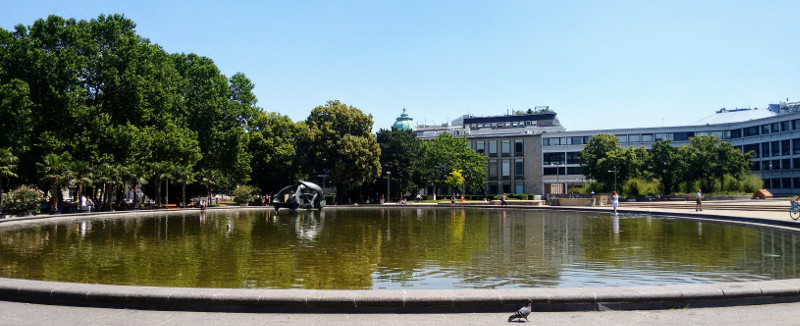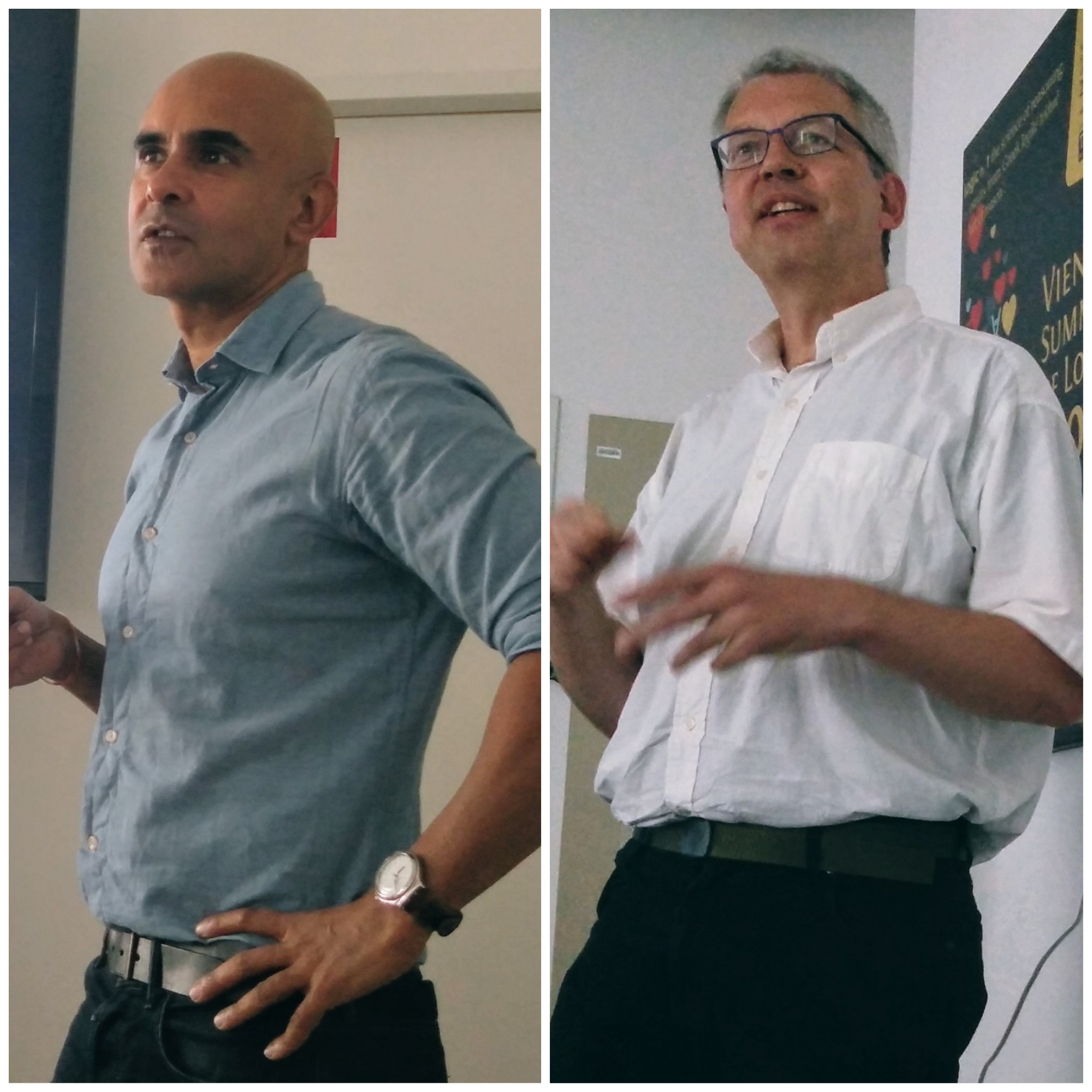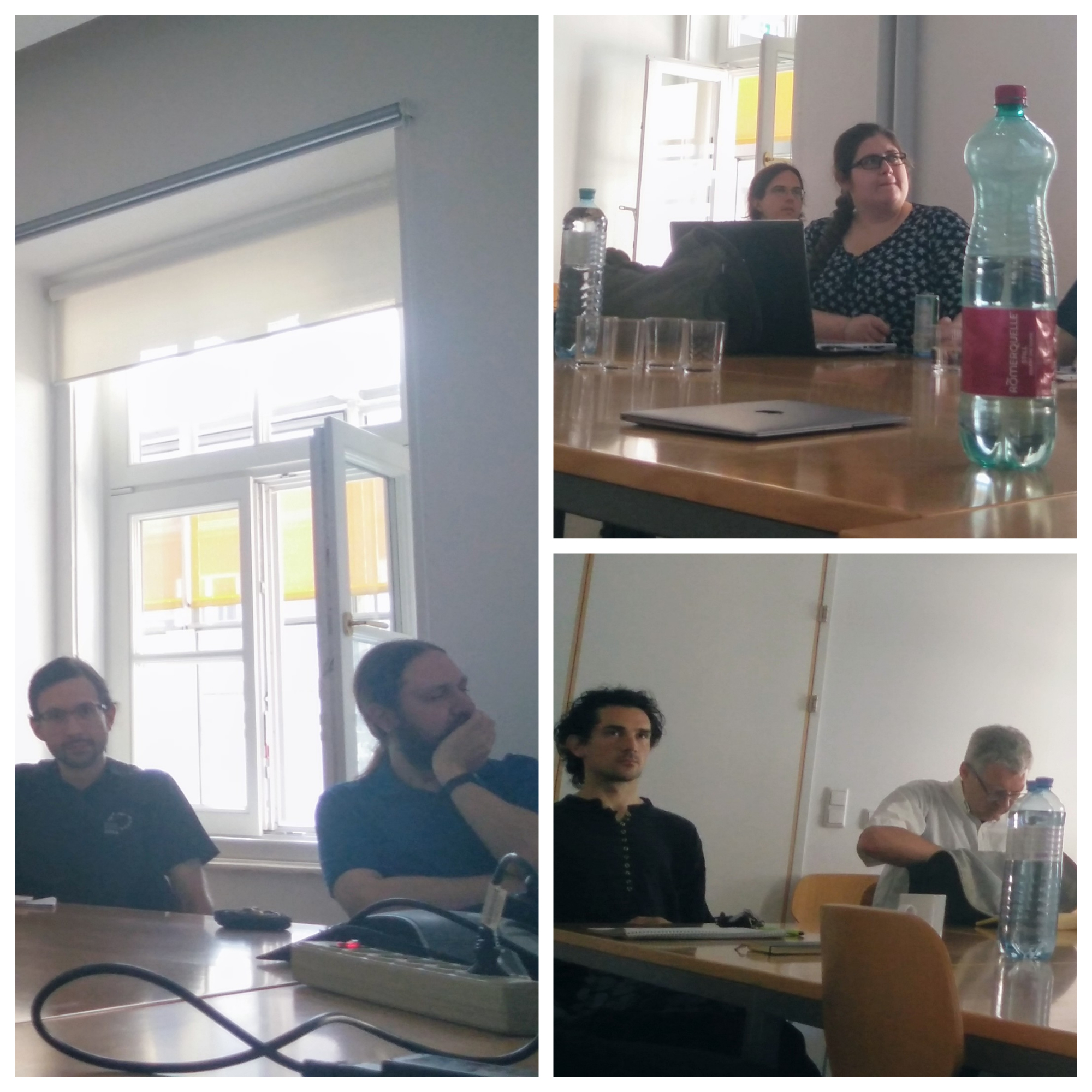
Workshop on New Trends in Formal Argumentation
The workshop will take place in Vienna on August 17, 2017.
ORGANIZATION
Stefan Woltran
Johannes Wallner
Adrian Haret
AIMS AND SCOPE
Argumentation is nowadays a central part of modern Artificial Intelligence research, and a main topic at major AI conferences, with application domains in legal reasoning, multi-agent systems, and decision support. Key to this research is the field of formal argumentation which studies formal models to represent arguments, methods to infer conclusions from conflicting points of view, and to provide means for automated reasoning for computation of acceptable conclusions. In the past decades many foundational results have been established for formal argumentation, yet several challenges only have recently found more attention in the research community, or remain not sufficiently solved, such as formalizations of dynamics in argumentation, enrichment and in-depth study of existing formal models to close gaps to applications, efficient algorithms and system implementations, and many more.
The aim of this workshop is to bring together researchers from several parts of the diverse field of formal argumentation in order to discuss recent results and ongoing work on the new challenges.
Topics of interest include, but are not limited to:
- Formal models in argumentation
- Structured argumentation
- Argumentation and multi-agent systems
- Preferences in argumentation
- Dynamics in argumentation
- Applications of argumentation
- Argumentation and natural language
- Complexity of problems in argumentation
- Implementations and argumentation systems
INVITED SPEAKERS
We are happy to announce that the following speakers will give invited talks:
- Sanjay Modgil, King's College London,
- Leon van der Torre , University of Luxembourg.
PRELIMINARY PROGRAM AND SCHEDULE
| 09:00 | Invited talk: Sanjay Modgil |
Classical Logic, Argument and Dialectic |
| 10:00 | ||
| 10:30 | Martin Diller | Defeasible ACE Rules |
| 11:00 | Johannes Wallner | From Structured to Abstract Argumentation: Assumption-Based Acceptance via AF Reasoning |
| 11:30 | Thomas Linsbichler | Towards Preprocessing for Abstract Argumentation Frameworks |
| 12:00 | ||
| 13:30 | Invited talk: Leon van der Torre |
Dynamic argumentation semantics |
| 14:30 | ||
| 15:00 | Christof Spanring | From Intractability to Inconceivability |
| 15:30 | ||
ABSTRACTS OF THE TALKS
Invited Talks
Classical Logic, Argument and Dialectic (PDF)
Sanjay Modgil, King's College London
Abstract: Logical instantiations of Dung argumentation frameworks provide for dialectical characterisations of non-monotonic inference. Sufficient conditions ensuring that such instantiations satisfy rationality postulates have been extensively studied. However, these conditions preclude satisfaction of practical desiderata for real-world dialectical uses of argument by resource bounded agents. This is in large part due to the deductive (classical logic) reasoning deployed in construction of arguments. In this talk I will present joint work with Marcello D'Agostino (Department of Philosophy, University of Milan) on defining a new approach to classical logic argumentation that satisfies practical desiderata while at the same time satisfying the consistency, closure, and non-contamination rationality postulates. The work presented points to development of more general, practical and rational accounts of structured argumentation that integrate deductive and defeasible reasoning in the contruction of arguments.
Dynamic argumentation semantics (PDF)
Leon van der Torre, University of Luxembourg
Abstract: Dung introduced so-called argumentation semantics as a function from argumentation frameworks to sets of acceptable arguments. The handbooks on formal argumentation describe how this general framework for non-monotonic reasoning has been extended in many different ways over the past two decades. In this presentation I introduce a dynamic agenda going beyond dialogue, and in particular I introduce two new dynamic extensions of Dung's approach. The first dynamic argumentation semantics is based on an update relation removing attacks and arguments from argumentation frameworks. The fixpoints of this update semantics are the extensions of Dung's static approach. The second dynamic argumentation semantics builds on input/output argumentation frameworks, which have been introduced three years ago. We introduce dynamics in this compositional approach to formal argumentation by considering input streams of arguments.
Talks
Defeasible ACE Rules (PDF)
Martin Diller, TU Wien
Abstract: In this talk we report on initial steps undertaken towards linking argumentation as it occurs in natural language and more formal models of argumentation developed in AI. We do this via a controlled natural language: a purposefully selected sub-set of a natural language that can be extended and its formal semantics corrected in light of theoretical and empirical studies. As a front-end in our work we have chosen the controlled natural language, ACE, and extended it with a linguistic marker to indicate defeasibility ("it is usual that..."). At the back-end we have modified an existing reasoner for a subset of ACE, AceRules, by linking it to answer-set encodings for an argumentation-based semantics for evaluating knowledge bases of strict and defeasible rules. We report on the reasons behind our choices for the controlled natural language and semantics, illustrate our choices with examples, and detail issues encountered as well as ongoing work.
Joint work with Adam Z. Wyner and Hannes Strass.
From Structured to Abstract Argumentation:
Assumption-Based Acceptance via AF Reasoning (PDF)
Johannes Wallner, TU Wien
Abstract: We study the applicability of abstract argumentation (AF) reasoners in efficiently answering acceptability queries over assumption-based argumentation (ABA) frameworks, one of the prevalent forms of structured argumentation. We provide a refined algorithm for translating ABA frameworks to AFs allowing the use of AF reasoning to answer ABA acceptability queries, covering credulous and skeptical acceptance problems over ABAs in a seamless way under several argumentation semantics. We empirically show that the approach is complementary with a state-of-the-art ABA reasoning system.
Joint work with Tuomo Lehtonen and Matti Järvisalo.
Towards Preprocessing for Abstract Argumentation Frameworks (PDF)
Thomas Linsbichler, TU Wien
Abstract: Recent years have seen an increasing number of systems for solving abstract argumentation frameworks. This development cumulated in the origination of the International Competition on Computational Models of Argumentation (ICCMA). However, compared to other areas, the availability of accompanying tools is still lacking. For instance, in SAT or QBF solving, preprocessing turned out to be a crucial building block for making systems more efficient in practice. In a nutshell, preprocessing refers to a family of simplifications which are computationally easy to perform and yield formulas that are logically (or at least satisfiability) equivalent. Preprocessing in the context of argumentation poses some additional challenges since the semantics we have to deal with are nonmonotonic by nature. In this talk, we first discuss some theoretical foundations which allow to identify equivalence-preserving local replacements. Secondly, we shall highlight further ingredients which are necessary to develop a preprocessing tool. Finally, we pinpoint potential future research directions.
Joint work with Ringo Baumann, Wolfgang Dvorak and Stefan Woltran.
From Intractability to Inconceivability (PDF)
Christof Spanring, University of Liverpool and TU Wien
Abstract: In computer science in general and in formal argumentation in particular much work has been produced investigating computational complexity of given questions. For instance credulous acceptance of arguments for preferred semantics was shown to be NP-complete and is thus widely considered as intractable. That is, we currently assume that for any given solver (for some NP-complete question) there will always be a maximal instance size such that we can guarantee this solver to produce a correct solution. It may be observed that a reasonable (and finite) knowledge base might result in an infinite argumentation framework. In this research we consequently take the question of collapse a bit further and investigate arbitrarily infinite argumentation frameworks, the case where collapse of semantics becomes more common. We further trace the matter of collapse back to expressiveness and highlight that from a certain perspective inconceivability can be considered a strength rather than a weakness.
PARTICIPANTS
Agata Ciabattoni,
Martin Diller,
Adrian Haret,
Atefeh Keshavarzi,
Thomas Linsbichler,
Sanjay Modgil,
Sylwia Polberg,
Christoph Spanring,
Leon van der Torre,
Johannes Wallner,
Stefan Woltran
VENUE
Seminarraum Menger
Address: Favoritenstraße 9-11, TU Vienna, Vienna (map)
Third floor (map)
Room: HF0311
PHOTOS FROM THE EVENT



SPONSORS
The workshop is supported by the VCLA.
